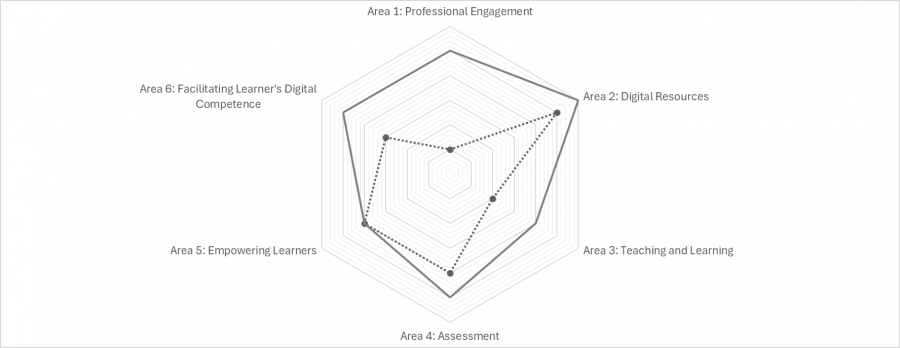Automatic assessment of Teacher Digital Competence through interaction with the virtual learning environment Student’s name: Eduard de Torres Gómez

The emergence of digital technologies and their rapid evolution have driven a digital transformation of the information society, affecting work, leisure, and daily life for all citizens. In the 21st century, individuals must develop a set of competencies that enable them to navigate information and communication technologies effectively. Education has also undergone significant changes due to this transformation, requiring modern educators to integrate digital competencies into teaching and learning processes. The impact of digital technology over recent decades has led institutions such as the European Union, UNESCO, and ISTE to establish frameworks that define teacher digital competency and outline methods for its assessment.
This doctoral thesis presents the results of a research project aimed at evaluating university educators' teaching digital competence by analyzing their interaction with a virtual learning environment. The assessment is conducted by examining data stored within the virtual learning environment, which is generated from educators' actions.
The evaluation framework employed in this research project is the European Framework for the Digital Competence of Educators (DigCompEdu). This framework defines 22 competencies and a six-level progression model.
The research methodology follows a design-based research approach. The project is structured into four iterations, each defined from feedback obtained in previous stages.
During the first iteration, 261 indicators were identified, linking activities and resources in Moodle—the selected virtual learning environment—with 16 competencies from the DigCompEdu framework. In the second iteration, a tool was developed to extract and analyze Moodle database records to compare with these indicators. This tool enabled the automated assessment of 1,020 university educators who taught undergraduate, master's, or postgraduate courses at La Salle Campus Barcelona – Universitat Ramon Llull during the 2022–2023 academic year. The study was repeated for the 2023–2024 academic year, evaluating 1,037 educators from the same institution and academic programs.
The results indicate that, on average, educators scored at a low proficiency level during the 2022–2023 academic year, corresponding to A2 – Explorer within the DigCompEdu framework. However, a significant improvement was observed in 2023–2024, with the average proficiency level increasing to B1 – Integrator. Notably, educators demonstrated strong competencies in creating, modifying, and managing shared digital resources, utilizing digital tools for assessment, and fostering students’ digital competencies in content creation and resource management.
Among the study’s limitations, the inability to assess six of the competencies defined by the DigCompEdu framework stands out, along with the lack of indicators necessary to evaluate the C2 – Pioneer proficiency level.